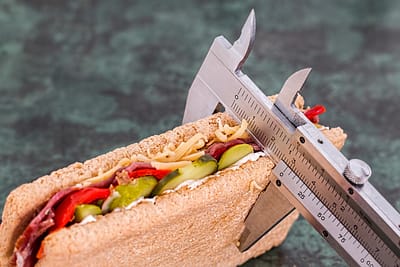
These days, many people are frequently losing weight. It’s crucial to take a balanced and long-lasting strategy to it.
While fast cures and crash diets may advertise speedy weight loss, they sometimes come with health hazards and are ineffective over the long term.
However, if you are trying to lose a specific amount of weight—say, 10 pounds in two weeks—you may be able to do that by combining a healthy diet with exercise and lifestyle modifications.
In this article, we are going to go through step-by-step secure and practical plans to help you achieve your weight loss aim in a healthy manner.
1. Manage Stress
Stress can cause binge eating and make it harder to follow a weight loss strategy.
To handle stress and emotional eating, try stress-reduction activities like yoga, deep breathing exercises, meditation, or spending time in nature.
2. Get Adequate Sleep
Sleep is essential for controlling weight. Hormones that control appetite and hunger can be upset by a lack of sleep, which can result in increased desires and overeating.
To help your efforts to lose weight, aim for 7-9 hours of good sleep each night.
3. Increase Physical Activity
Increasing your physical activity is crucial for creating a calorie deficit in addition to limiting your calorie consumption.
To increase calorie burning and maintain muscle mass, try to combine cardiovascular workouts with strength training.
Here are a few advices:
- Engage in activities like jogging, swimming, cycling, or brisk walking for at least 30 minutes a day. Gradually increase the duration and intensity of your workouts as your fitness level improves.
- Incorporate strength training exercises 2-3 times per week to build and maintain muscle mass. Muscle burns more calories at rest than fat does.
- Look for opportunities to be active throughout the day, such as taking the stairs instead of the elevator or going for a walk during your lunch break.
4. Create a Calorie Deficit
The key to losing weight is to consume less calories than you burn. You will require a calorie deficit of roughly 3,500 calories each day to lose 10 pounds in two weeks.
This can be accomplished by combining calorie intake reduction with an increase in calorie expenditure via physical exercise.
5. Follow a Balanced Diet
A healthy diet is necessary for long-term weight loss. Concentrate on eating entire foods, such as fresh produce, lean meats and fish, whole grains, and healthy fats.
Foods heavy in added sugars, saturated fats, and processed carbs should be avoided or limited.
- Portion Control: Pay attention to portion sizes to avoid overeating. Use smaller plates and utensils to help control your portions.
- Meal Planning: Plan your meals in advance to ensure you have healthy options readily available. This can help prevent impulsive, unhealthy food choices.
- Hydration: Stay hydrated by drinking plenty of water throughout the day. Sometimes, thirst can be mistaken for hunger.
- Snacking: Choose healthy snacks like nuts, yogurt, or fruits when you need a snack between meals. Avoid mindless snacking in front of the TV or computer.
6. Monitor Your Caloric Intake
In order to know that you are taking fewer calories than your body requires, you should know how many you take every day.
To keep track of your meals and snacks, you can use a calorie tracking app or write down everything you consume in a food diary.
You’ll be able to maintain accountability and make wise eating judgments as a result.
Be aware of the calories that might be concealed in sauces, dressings, and beverages because they can pile up quickly.
7. Be Consistent and Patient
To successfully lose weight, you must be consistent. It’s critical to realize that weight loss may not occur in a linear fashion and may occasionally see slower progress or even brief plateaus.
Don’t let little setbacks derail your patience or commitment to your plan; instead, keep going.
8. Stay Hydrated
Proper hydration is very important for overall health and can help with weight loss.
In addition to supporting a healthy metabolism and effective digestion, drinking enough water may be helpful in managing appetite.
You should at least consume 8 to 10 glasses of water each day.
9. Avoid Extreme Measures
While trying extreme diets or pills that promise quick weight loss may be appealing, these methods are frequently unsustainable and may even be damaging to your health.
Avoid extreme weight-loss supplement use, fasting diets, and crash diets without a doctor’s supervision.
10. Monitor Your Progress
Regularly weigh yourself and measure your physique to keep track of your progress.
Remember that progress is not only measured by the scale; how you feel, and how energetic you are, and changes in your body’s composition are also significant indicators of success.
11. Consult with a Healthcare Professional
It’s wise to speak with a healthcare provider before making any big adjustments to your diet or exercise regimen.
They may evaluate your existing state of health, make tailored advice, and guarantee that your weight loss program is secure and appropriate for your particular requirements.
If you are taking medication or have any underlying medical conditions, this step is very crucial.
12. Seek Support
Having a support network can be quite helpful because losing weight can be a difficult process. Share your objectives with loved ones or close friends who can encourage you and hold you accountable.
If you’re looking for expert advice, think about joining a weight loss support group or working with a licensed nutritionist or personal trainer.
Wrap up
Losing 10 pounds in two weeks is difficult and might be harmful to your health. You should exercise caution and give your health a top priority.
Eating a good diet, exercising frequently, getting enough sleep, and managing stress can all help you lose weight safely and effectively.
Keep in mind that every person has a different weight reduction path, so what works for one person might not work for another.
It’s critical to maintain your dedication and patience. Think about speaking with an expert if you need assistance.
Creating healthy behaviors that you can maintain for a long time is ultimately what’s most crucial if you want to keep the weight off.



